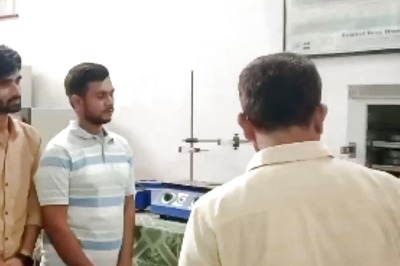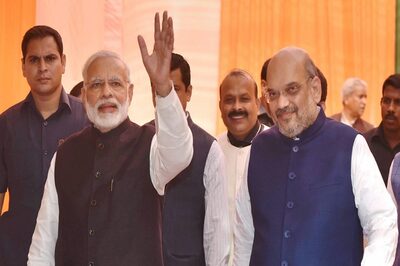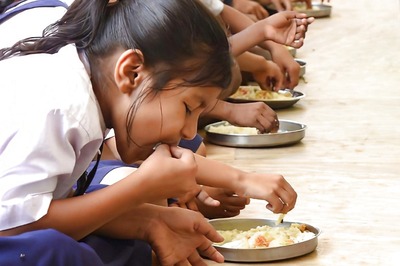
views
Beijing: China's BRI is not a debt trap or regional hegemony as the multi-billion dollar initiative has brought economic development and hope to its participants, a top Chinese official said on Saturday.
Touted as Chinese President Xi Jinping's ambitious project, the Belt and Road Initiative (BRI) focuses on improving connectivity and cooperation among Asian countries, Africa, China and Europe.
China's annual political season, which will include full sessions of its rubber-stamp Parliament — the National People's Congress (NPC) and a consultative body of the Chinese People's Political Consultative Conference (CPPCC) — began on Saturday with CPPCC spokesman Guo Weimin taking questions from local and foreign reporters during a nationally-televised press conference.
In the next 10 days, the two bodies comprising over 5,000 delegates would deliberate on a host of national and international issues besides announcing the national defence budget. The NPC begins its session on March 5. Chinese Premier Li Keqiang would present work report for the year.
The NPC is set to pass several key legislations including a new law that would address the concerns of the US over the Intellectual Property Rights (IPR), one of the key demands of US President Donald Trump, who last year declared a trade war with China by imposing additional tariffs on over USD 200 billion worth of Chinese products.
Guo began his press meet emphasising on the core leader status of Chinese President Xi Jinping who emerged as the most powerful leader after Mao Zedong with prospects of continuing as leader for life following the constitutional amendment to remove the two-term limit for President.
Xi, who heads the ruling Communist Party of China (CPC), the military and the Presidency, emerged as the most powerful leader in recent times. He is currently in his second term which would continue till 2022.
Guo put up a strong defence of Xi's pet project the BRI, which has raised concerns after China acquired Sri Lanka's Hambantota port for a 99-year lease as a debt swap.
The US, India and several other countries raised concerns over the BRI as China doled out huge loans to smaller countries for infrastructure projects without taking into consideration their ability to pay back the money.
The BRI includes USD 60-billion China, Pakistan Economic Corridor which India opposes as it traverses through the Pakistan-occupied Kashmir.
Pakistan has announced slashing some of the projects to reduce its debt burden.
China is due to hold the second BRI Forum for International Cooperation next month in which several world leaders, specially from Pakistan, are expected to be present.
India had boycotted the first forum last year and China is keen to rope in New Delhi to attend it this year in view of the improved ties between the two countries following last year's informal Wuhan summit between Prime Minister Narendra Modi and Xi.
Replying to a question about concerns of debt traps and regional hegemony by China using the BRI projects, Gau said that the BRI has brought development and hope to participants.
China's investments in related countries mainly went to infrastructure projects which will facilitate local development in the long term, Guo said.
The debt problems of some developing countries were created by complicated historical reasons, he said.
"It's totally ungrounded calling BRI a debt trap," Guo said.
The initiative has promoted local economic development and over 100 countries and international organisations have actively supported and participated in it by the end of last year, he said.
"The initiative has nothing to do with regional hegemonism. With the initiative progressing, China is winning more and more friends," he said.
Guo also hailed the positive progress in China-US trade talks to end the trade war.
Reaching a mutually-beneficial agreement as soon as possible will not only benefit both countries, but also be good news for the world economy, he said.
The latest round of consultations in Washington was held under the guidance of the important consensus reached by the presidents of the two countries, he said.
"Substantial progress has been made on such specific issues like technology transfer, protection of intellectual property rights, non-tariff barriers, service industry, agriculture and exchange rates," Guo added.




















Comments
0 comment